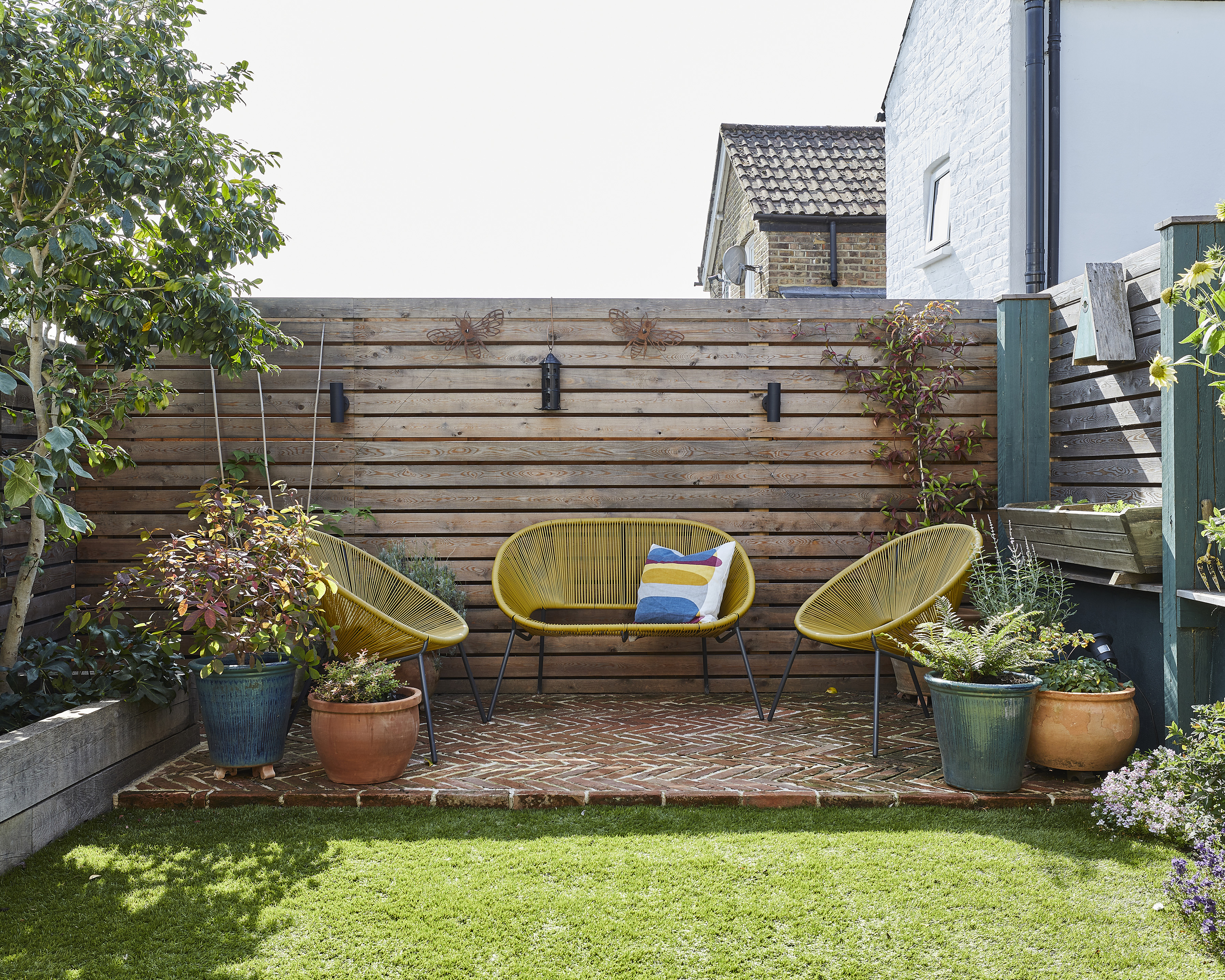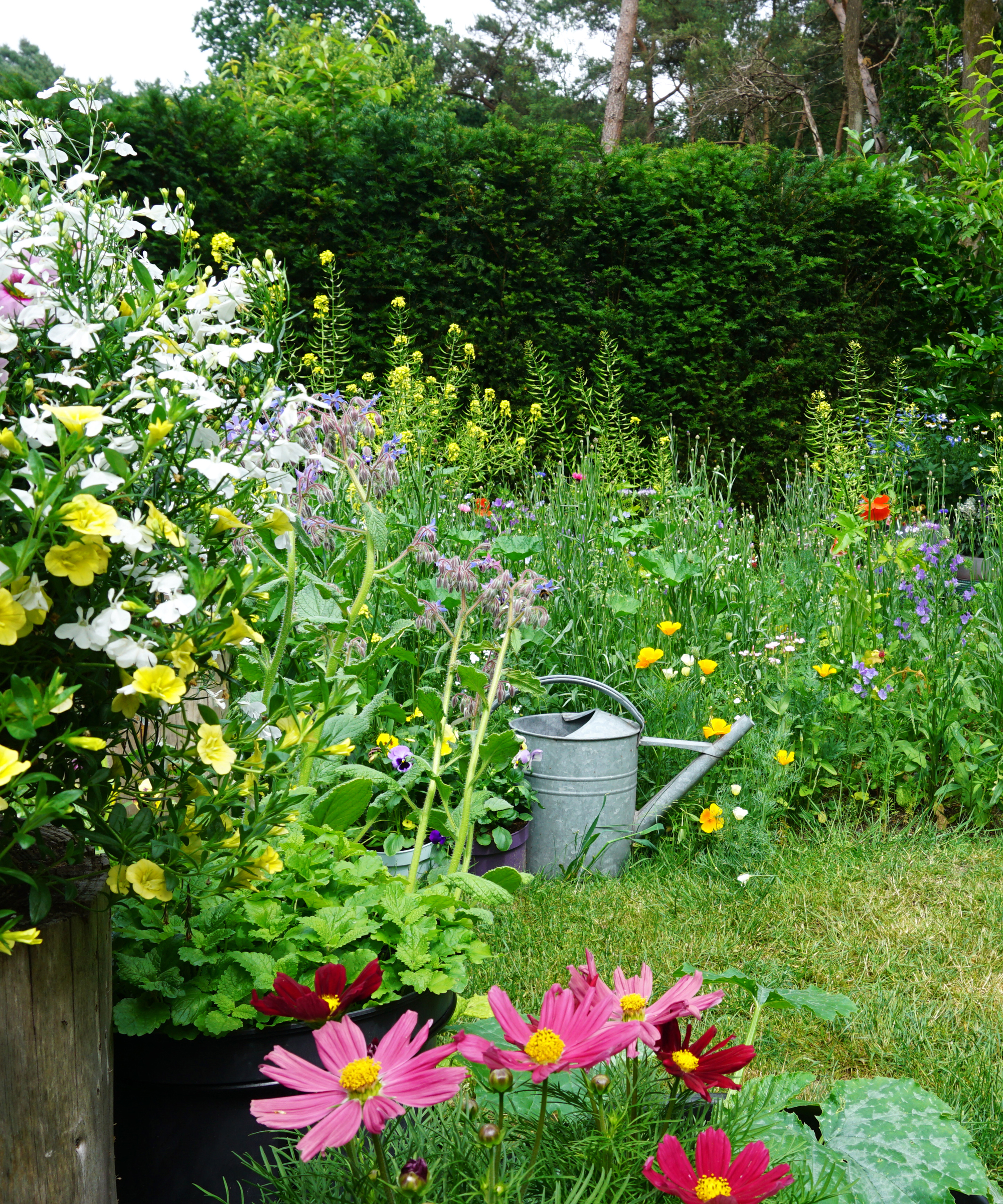How to kill weeds naturally – 10 quick and easy methods
Learn how to kill weeds naturally (and quickly) for a pristine lawn and patio – without using harsh chemicals.

If you want to learn how to kill weeds naturally, you're not alone. Weeds are a fact of any gardener's life, but not everyone is up for using harsh chemicals, whether it's because they're trying to garden organically, or because they're concerned about the wildlife that comes into the garden.
Of course, there are cases when a commercial weed killer becomes necessary. Some weeds are so tough and invasive (hello, Japanese knotweed) that you do need to resort to industrial-strength products to eradicate them. Having said that, most weeds can be tackled naturally, often for free.
Whether you're into growing your own and want to stop dandelions creeping up around your tomatoes, or if you've got a tiny lawned garden that looks great straight after a go-over with a small lawnmower, only to sprout new green intruders in a matter of hours (yes weeds can and will pop up overnight), sure prevention is the best method, but when mother nature literally takes over, this is what to do:
1. Pull weeds out
If you have a small to medium-sized garden, you may well be able to get on top of the weeds by simply pulling them up with your hands. Removing the root is the most effective way to get rid of weeds, so you'll want to pull carefully at the base of the plant to make sure you pull it out completely. If pulling nettles, use protective gloves.
There are lots of tools designed to help you get rid of weeds, especially in lawns. We rate the Fiskars Solid Weed Puller but any basic weed pulling tool will do the job also. You could even grab a fork...
2. Prevent weeds from growing in the first place
This may sound obvious, but preventing, or at least minimizing, weed growth is a very effective weed control strategy. This is very easy to do as part of making raised beds in your garden. Kassandra Flores, a small space gardener from North Dakota and a consultant at Juliei Salone, recommends lining your beds with plastic bags: 'I'll usually use garbage bags, and if you have the contractor bags, you can cover quite a bit of the area.'
If you are into container gardening, avoid weeds by not using your garden soil in your containers – use potting compost only.
Get small space home decor ideas, celeb inspiration, DIY tips and more, straight to your inbox!
3. Make a weed killer with salt and vinegar
Mix equal parts salt, vinegar, and dish soap in a spray bottle and spray the solution liberally over the weeds, until they are soaking wet. Always use this method when the weather is dry, or it won't work. A sunny day is even better as this accelerates the process.
4. Homemade weed killer made with Castille soap
Castille soap is a wonder product all around the house – it can even be used to wash vegetables and fruit. It's gentle on your plants, but tough on weeds. Mix it in equal parts with water and spray all over your weed, preferably when the sun is out. We like Dr. Bronner's Organic Baby Unscented Pure-Castile Liquid Soap that's usually cheap on Amazon.
5. Use bicarbonate of soda
Did you know you can discourage weeds by sprinkling baking soda – aka bicarbonate of soda – into the cracks between your paving? While you're out there, try using it to clean your BBQ and bins.
6. Use lemon
Cut a lemon in half and squeeze over the weeds. It's as simple as that: the citric acid will likely kill your weed within a couple of days, especially when combined with strong sun. No need to dilute.
Alternatively, get some citric acid in powder form, mix with water and spray on with a spray bottle.
7. Let your grass regrow a bit
This may sound counterintuitive, but taller grass is better able to cope with weeds. So, next time you get your lawn mower out, set it a bit higher to allow your grass to deal with weeds without you needing to do anything.

8. Mulch your bedding plants
Mulch is an excellent way to combat weeds. Use bark chips or pine needles to keep the weeds down. Sprinkle generously around the roots of your plants.
9. Let some weeds be
Some weeds, like bindweed, can become a serious problem in your garden, choking out everything else. However, not all weeds behave this way, and many are actually highly beneficial plants for pollinators, notably clover and dandelions. If they're just scattered around your lawn or garden here and there, you may find it easier to just let them be.

10. Use salt
Salt is an ingredient in one of our other homemade weed killers above, but it can be just as effective on its own. Sprinkle liberally all over the offending plant. By the way, salt is also a good remedy for slugs, so you could be killing two birds with one stone.
Does pouring boiling water over weeds work?
Not really. This much-promoted weed-killing hack is not very effective and may even do more harm than good in your garden. ate Russell, a gardening blogger at The Daily Garden and author of Stop Wasting Your Yard! (available from Amazon), explains that 'weeds are very tenacious and they have evolved many ways of coming back to life from near-death. Because of this, boiling water is only marginally effective. While boiling water can kill the above-ground portion of the plant, many weeds are able to recover by pulling resources from the root system.'
Moreover, if you keep pouring boiling water over your plants, you will eventually damage the surrounding plants and could even damage the microflora in your soil.
What is the fastest way to kill weeds?
The fastest way is the homemade weed killer mix that uses vinegar, salt, and dish soap. Because you're throwing three ingredients at the weed at the same time, the weed will die quicker. You do need to be careful not to damage surrounding plants and not to apply too much as the weed killer could seep into the surrounding soil, damaging the root systems of the plants you want to keep.
Ultimately, the quickest method isn't necessarily the best when it comes to weeding. Pulling weeds may not be fun, but it's the safest and most reliable way to clear your yard of weeds in the longer term.
Anna is a professional writer with many years of experience. She has a passion for contemporary home decor and gardening. She covers a range of topics, from practical advice to interior and garden design.